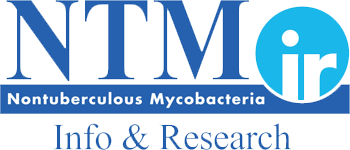Autoimmune pulmonary alveolar proteinosis (aPAP) is a rare lung disease that is caused by an abnormal accumulation of surfactant sediment in the alveoli (air sacs), leading to impaired gas exchange between the lungs and blood. The three main causes of PAP are autoimmune, congenital, and secondary. The majority (about 90%) of people with PAP have the autoimmune form. A blood test will allow for a definite diagnosis of autoimmune PAP. This test is useful for the autoimmune form of PAP, and exclude the diagnosis for congenital or secondary PAP. Symptoms include: shortness of breath, cough, chest pain, feeling tired, and fever. Patients with PAP are at increased risk for secondary infections including non-tuberculous mycobacteria infection.
Currently, there are no approved medicinal treatment options for aPAP and, historically, whole lung lavage has been used to physically remove surfactant from a patient’s lungs. It is performed under general anesthesia, and involves inserting a tube in each lung and washing out the lungs to improve lung function and reduce symptoms.
You can help reduce the impact of aPAP by following a healthy diet and exercise as tolerated. Like other lung diseases, avoiding tobacco smoke or vaping will help prevent making your lung problems worse. A yearly influenza vaccine (flu shot) is recommended, and talk to your healthcare provider about getting pneumococcal vaccine to help prevent some types of bacterial pneumonia.
